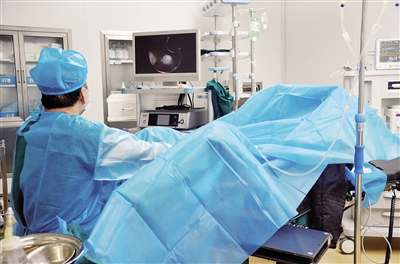Can Patients with Severe Prostatitis Consider Removing the Prostate?
Under normal circumstances, doctors hardly perform prostatectomy for patients because men will lose many functions after prostatectomy.

The prostate is a soft and elastic gland. The male urethra and ejaculatory duct pass through the bottom of the prostate and enter the urethra from the ejaculatory duct inside the prostate. The urethra runs through the prostate body and exits from the tip of the prostate. Therefore, the prostate controls urination and ejaculation in men and is the valve for urination and ejaculation in men. The prostate is full of capillaries and nerve endings, and the extrusion of the detrusor muscle during urination makes urination smoother.
The prostate is an organ unique to men and plays a vital role in multiple systems of men. Therefore, when lesions appear in the prostate, they will have many effects on men's bodies.
The prostate in a healthy man has the following functions:
1. The "gate" that controls urination and ejaculation.
2. Maintain normal sexual function.
3. Maintain normal reproductive function.
4. Complete urination and ejaculation.
5. The male hormone converter converts testosterone into physiologically active dihydrotestosterone and maintains the normal physiological functions of tissues and organs throughout the body.
Chronic prostatitis is local nerve endings and capillary necrosis of the prostate gland, resulting in decreased glandular function. The necrosis of capillaries leads to problems in the nutrition and metabolism of the glands, which are no longer healthy. At the same time, the necrosis of nerve endings leads to the impairment of the function of sensing and conducting sexual stimulation. It will affect the sexual center and nerve endings, making the whole sex conduction system abnormalities. This results in the following symptoms:
1. Frequent urination, urgency, painful urination, nocturia, incomplete urination, waiting to urinate, dripping white after urination, etc.
2. Premature ejaculation, not firm or firm but not long erection, erection taking too long, weak ejaculation, weakened ejaculation pleasure, impotence, nocturnal emission, etc.
3. Pain in urination, dull pain in the lower abdomen, swelling of testicles, perineum pain, foreign body sensation in urination, pain in ejaculation, soreness in thigh roots, and other radiation area pains.
4. Insomnia, dreaminess, hair loss, cold hands, and feet, memory loss, wet scrotum, etc.
What are the risks of having the prostate removed?
1. After losing the function of the urination valve, a cystostomy must be performed. Patients don't need to urinate in the future. They need to hang the urine bag directly, clean it regularly, and replace the intubation tube. This operation is traumatic and irreversible. There is no way to repair it.
2. After the prostatectomy, patients lose the male ejaculation valve and male sexual function, including the conversion function of male hormones. If a man does not have enough male hormones, he will enter menopause early. Functioning of a man's heart, breath, and blood pressure requires sufficient male hormones, and insufficient male hormones will cause the decline of these functions.
Cystostomy is used for the treatment of chronic prostate diseases. Generally, when the prostate is seriously affected, and the glands have been seriously deformed, affecting kidney function, the glands will be removed. A fistula will be performed on the suprapubic bladder to drain urine out of the body for temporary or permanent urinary diversion.
This operation is not once and for all. Many patients have had hematuria for a long time after this operation. Some patients will feel tired after walking for a long time and have various problems and discomfort caused by the sliding tube.
Recommended Readings:
Urinate As Soon As Drinking Cold Water, Have You Ever Thought It Was Prostatitis?



